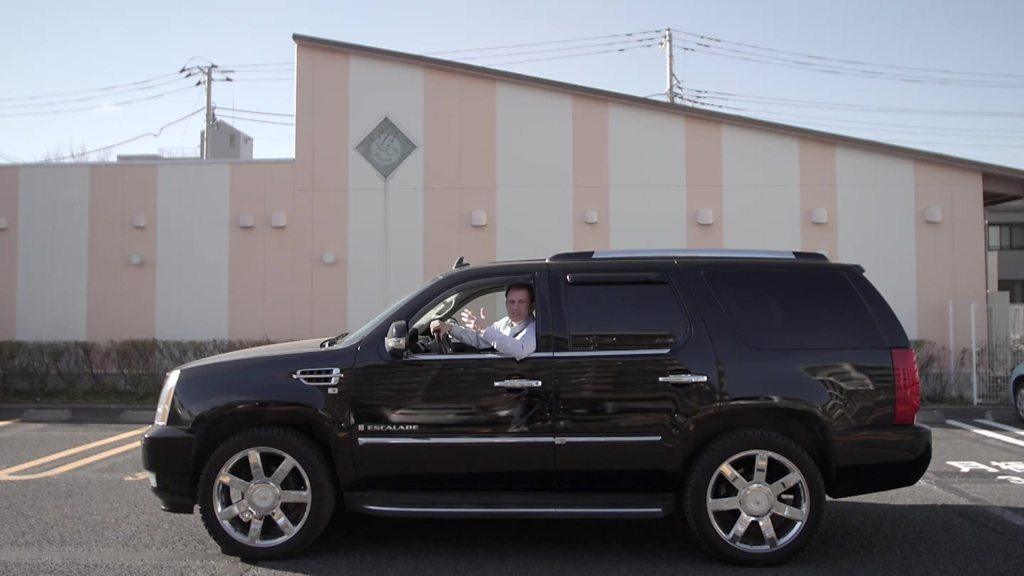Reality Check: Was Trump right about Japanese cars sold in the US?
- Published
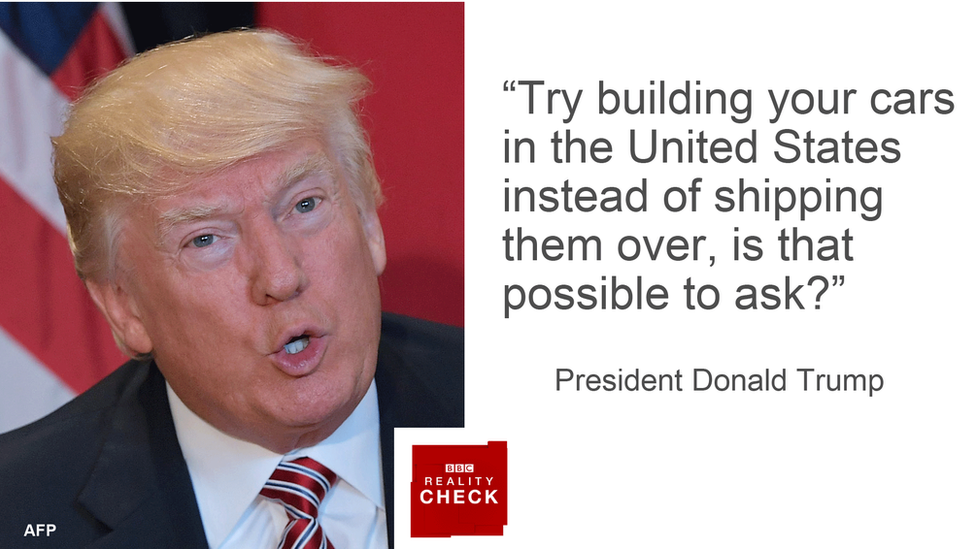
The Claim: President Donald Trump called on Japanese car makers to make their vehicles in the US. Some media outlets rebuked him, saying they already do, and that 75% of Japanese cars sold in the US are made in North America.
Reality Check Verdict: Looking at the top six Japanese carmakers in the US, approximately 53% of cars sold in the US were made there. The rest were made in Japan, Mexico, Canada, and elsewhere.
It was a typically direct way to address his hosts.
On a visit to Japan, President Donald Trump told a room full of the country's chief executives: "Try building your cars in the United States instead of shipping them over. Is that rude to ask?"
The US media jumped on that remark, suggesting that the President seemed unaware that many Japanese cars are already assembled in the US. CNN's original headline was "Trump asks Japan to build cars in the US. It already does"., external
Journalists were so quick to rebuke President Trump because they had access to a figure from the Japan Automobile Manufacturers Association (JAMA).
It says that 75% of Japanese branded vehicles sold in the US last year were assembled in North America., external
But that figure includes vehicles that were built in Canada and Mexico, as well as those built in the US.
President Trump wants more cars to be assembled in the United States specifically. A car built in Mexico is no more pleasing to him than a car built in Japan.
So the 75% figure is not the best one to use in this particular discussion.
How many of the Japanese cars sold in the US were built in the US? This answer is harder to come by than you might expect.
How many cars?
JAMA itself doesn't break down that figure any further.
It's an industry standard to record car sales across the whole of North America - partly because auto production is so interlinked across the US, Canada and Mexico.
So we went directly to the car manufacturers.
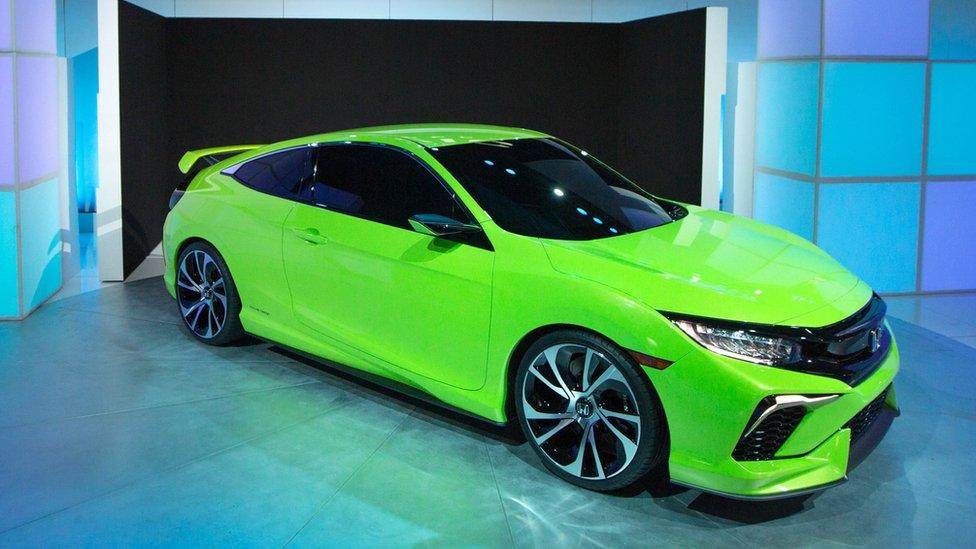
Some Honda Civic cars are manufactured in Greensburg, Indiana
The following figures are for 2016.
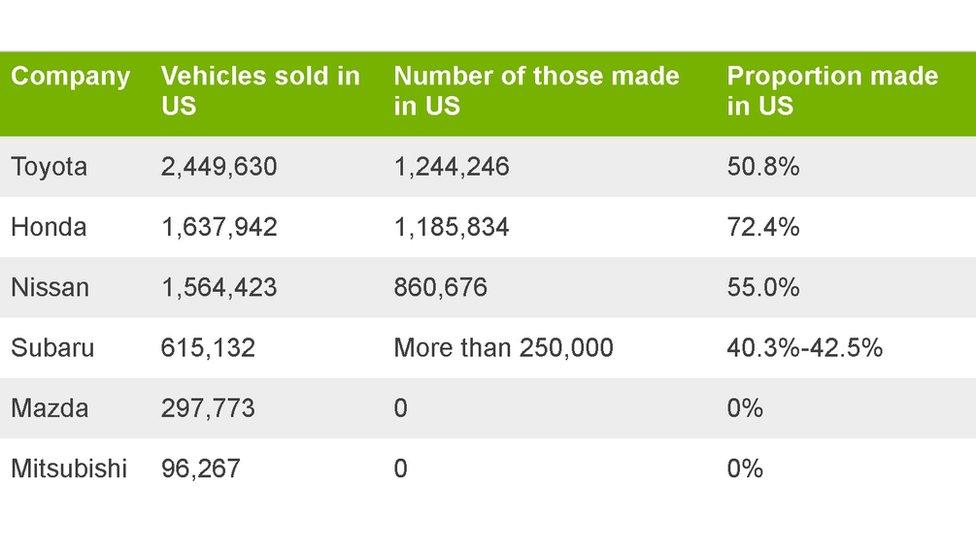
The Toyota figures include sales of Lexus vehicles, while Honda's include Acura.
We can't be more precise about Subaru's production figures, because they only started making the Impreza in the US midway through the year.
These are the top six Japanese car manufacturers in terms of US sales. According to the Auto News Data Centre, they accounted for nearly four in every 10 cars sold in the US in 2016., external
It's not a complete list - and it doesn't include firms like Yamaha that make motorbikes and other vehicles.
But roughly 53% of the vehicles these six firms sold in the US were made in the US last year. That's more than half, but it's a lot less than 75%.
Put the other way round, roughly 47% of the vehicles sold in the US weren't made there, and that, presumably, is President Trump's point.
Car manufacturers might well point out that it makes little economic sense to produce each type of vehicle they sell in every single country in which they sell them.
So, some models are built in the US, others elsewhere - and all are available to buy in as many countries as possible.
But could they produce more vehicles in US plants?
Yes - and they're already planning to.
President praises car makers
The President knows that too. In August, he applauded Toyota and Mazda's decision to invest US$1.6bn (£1.2bn) into a new car plant in the country.
At the time, the car makers said they hoped the new factory would produce 300,000 vehicles a year and employ about 4,000 people.
President Trump also acknowledged the contribution made by Japanese car makers in the press conference this week.
As well as building nearly four million vehicles in the US in 2016, Japanese car makers invested $45.6bn on manufacturing plants, research and development and design centres.
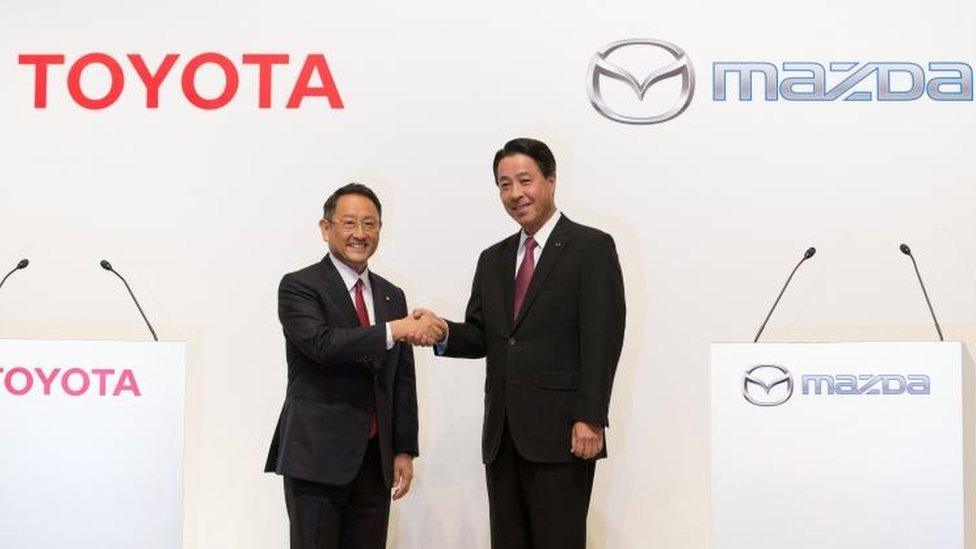
Mazda will begin producing cars in the US when it opens a new plant with Toyota
American cars in Japan
What about the claim that Donald Trump also made, that the US buys more cars from Japan than the other way around?
On that he is right.
According to the data from the US department of trade, the US exported 17,624 cars and light trucks to Japan in 2016., external
But the US bought far more cars from Japan in the same year - 1,707,268 to be exact., external
So why is this happening? Is it because of trade barriers that Japan puts up?
Not exactly.
Japan doesn't impose an import duty on cars from the US - though the US charges 2.5%, external (25% for trucks).
The US argues that rules and regulations - such as Japanese government standards on emissions and safety - are effectively trade barriers.
Japan doesn't see it that way.
Why do US carmakers sell so few vehicles in Japan? Rupert Wingfield-Hayes explains.
The disparity in car exports is also partly because the Japanese yen is so much weaker than the US dollar.
That means Japanese goods are cheaper to buy than American ones, so Japanese cars are consistently amongst the most popular in the US.
And it's also because the US doesn't make cars that Japanese drivers like all that much.
Size, fuel efficiency and steering wheels on the other side of the car are just some of the reasons why.
- Published4 November 2017
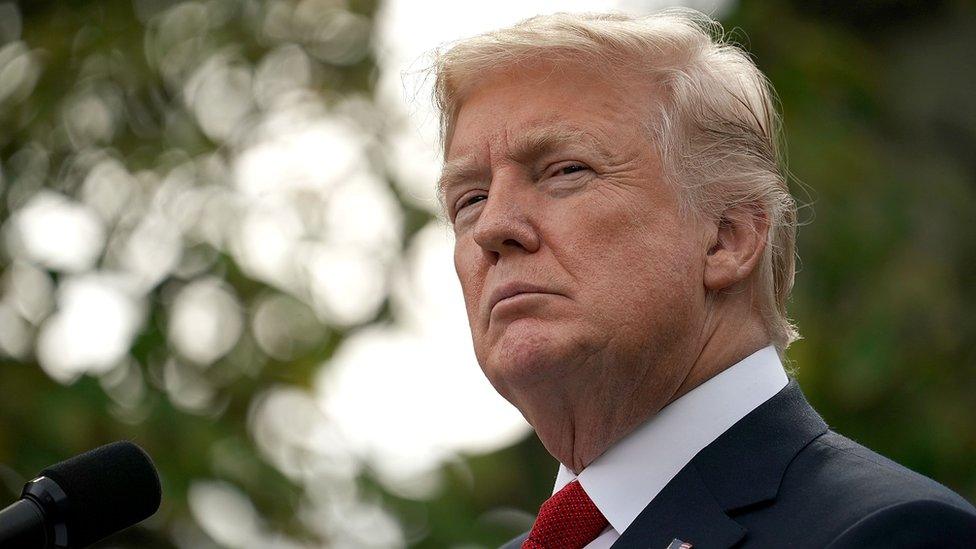
- Published6 November 2017
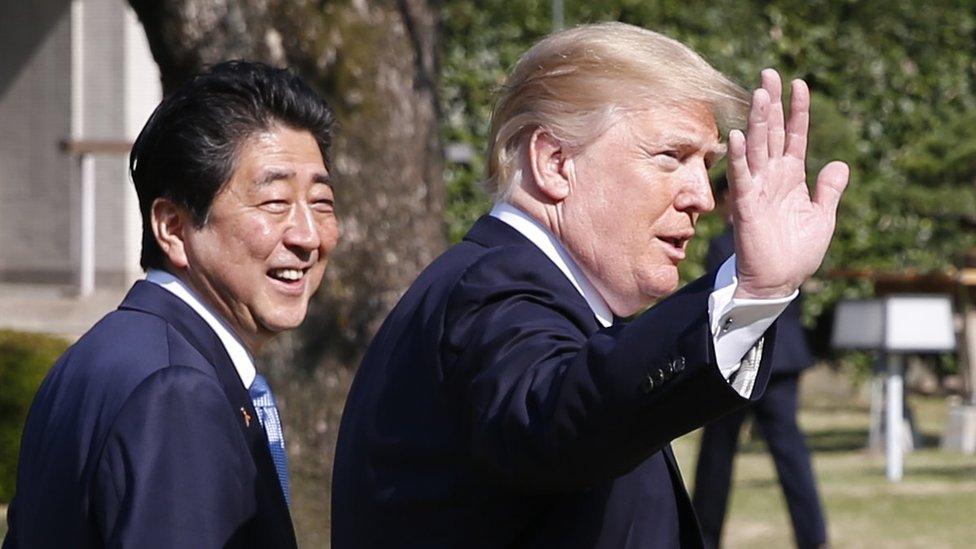
- Published9 February 2017
